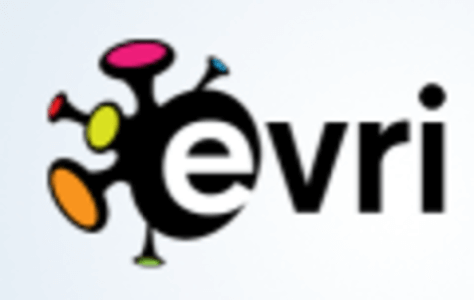Think the semantic web is all hype with no bite? Paul Allen backed semantic startup Evri will announce tomorrow that it has been acquired, we’ve learned from a reliable source. The service specializes in extracting the names of people, places and things from raw streams of text in order to facilitate smart user navigation and related content recommendation. The company launched a striking new version of its website earlier today.

Evri launched just short of two years ago and raised $8 million from Vulcan, the fund of Microsoft co-founder Paul Allen. More interesting than the business side of this story, though, is the technology. Evri brings the semantic and the real-time web together in some very interesting ways.
Update: According to new reports this morning, Evri wasn’t acquired. Instead, Evri acquiredRadar Networks. We regret this error. For a full discussion see coverage rounded up on Techmeme.

We profiled Evri as one of 10 intriguing companies in the real-time web space in our recent research report The Real-Time Web and Its Future. Also included was the now Google-acquired Aardvark. (See our coverage: How I Loved and Lost an Aardvark)
Here’s how we described the real time part of what Evri does in that report:
Evri is a semantic Web recommendation service for online publishers. The company tracks the real-time Web to know when it needs to create or update a topic page for one of its emerging news topics.
Evri watches news sources to see when a news topic is trending, including articles on Wikipedia that publicly available data shows have leaped in page views. Then it visits structured databases like Wikipedia and FreeBase to check for updates to entries about related entities. It then creates or updates a topic page with news links, photos and Twitter search results. The language used in those Twitter posts is analyzed and the names of news entities in the posts are linked to other Evri topic pages, like pivots.
Evri has done lots of other things as well, including a blog widget, an iPhone app, automated content portals for publishers and a sentiment analysis product. The company didn’t see a particularly large amount of hype but was closely watched. Robert Scoble, for example, named Evri one of his top startups to watch for 2010, even a year and a half after it launched.
We haven’t been able to identify the company that has acquired Evri yet but the most obvious candidate would be its neighbor and kin Microsoft, where the service would compliment the Powerset team nicely and change the Bing user experience in news search dramatically. Now that we know that Google is working on building a real-time index of the web (our coverage) the prospect of a competitor upping the ante with near real-time semantic parsing, riding on top of real-time indexing, sounds like a hot move.
A number of people have raised the possibility of an Amazon acquisition as well. Evri was also tested out by Yahoo! starting last Fall as a way to facilitate navigation throughout its Sports content pages.
Take that, semantic web doubters.
We’ll update this post when the acquiring party is identified. Geeky types interested in an in-depth explanation of Evri’s work would be well served by checking out a 6 part video series on YouTube wherein Deep Dhillon, CTO of Evri, discusses the company’s technology with students at the Paul G. Allen Center for Computer Science & Engineering.

















